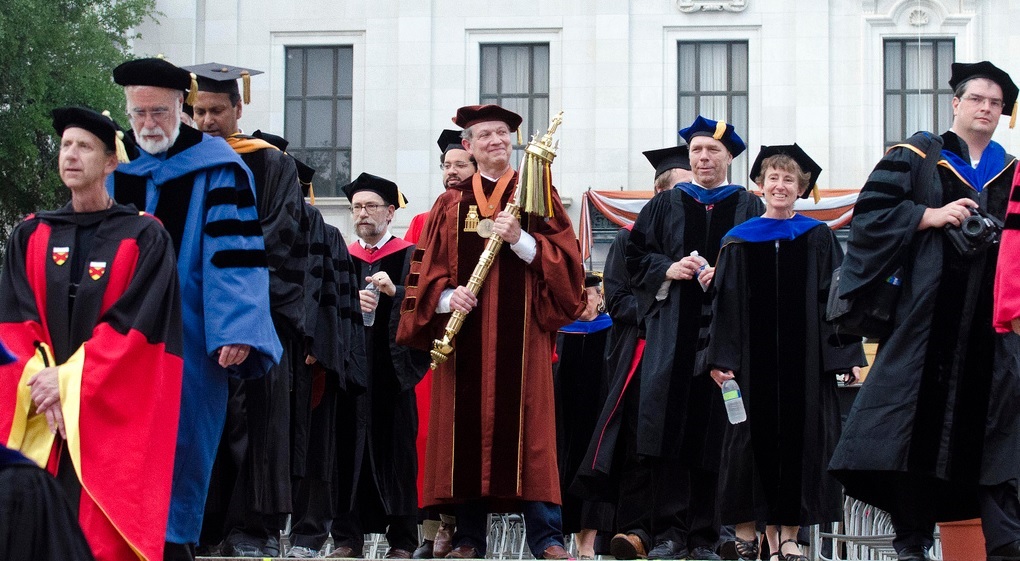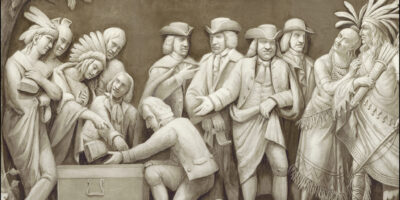Why Expert Opinion Has Value Even When It Is Wrong
The tendency of many libertarians to distrust expert opinion is in some ways curious. From the classical liberals of past centuries to the Austrian economists of the past few generations, the heroes of libertarianism are intellectual luminaries, experts in their own right. And when we mine their texts for greater understanding, we necessarily become what F.A. Hayek termed “secondhand dealers in ideas.”
Even as he criticized the overreach of science into social engineering, Hayek never dismissed these secondhand dealers out of hand. But some of his followers have taken a less nuanced view and see experts as a force in opposition to markets and individualism. Overreach aside, these critics miss the point. Expertise is a market phenomenon, a service that is an indispensable part of how we deal with the sheer volume of information around us that is impossible for any single individual to process.
This does not make navigating the landscape of experts easy, especially on hot-button issues where they often steadfastly disagree. In these situations, we can best inform ourselves when we understand how such disagreements emerge without assuming one side is either flat-out wrong or possesses ulterior motives.
Too Much Information
Part of this distrust of experts, shared by the populist Right, is a result of ideological conflict. In perception if not reality, experts disproportionately lean left. A backlash by libertarians and conservatives alike is understandable, though also a convenient way of deflecting a challenge to one’s beliefs. But political clashes are only one small piece of the puzzle.
An even more important piece has to do with the way many libertarians see the world — as a complex system that can only be navigated through a network of decentralized individual action. Attempts to control the system from the top down are potentially dangerous acts of hubris, as no individual or small group can gather or internalize the knowledge required for the task. Hayek termed the idea that society should be guided by such expert thinking scientism.
But dismissing all expertise as scientism ignores the market value created by such a service and casts experts as either misguided or fraudulent. When we view experts through the lens of the market, we understand not only their role, but also why and how they can go too far.
Creatures of the Market
Any self-styled follower of Adam Smith who also has a knee-jerk reaction against expertise is holding two beliefs that cannot peacefully coexist. They would be well served by rereading Smith on the division of labor.
Throughout my 20s I was a voracious, even obsessive consumer of new music. I also was in graduate school and then had a demanding consulting job, and I could not listen to several hundred new releases each year. I therefore relied on the knowledge and curatorial services of music critics.
Musicians tend to despise critics, and even consumers often approach them with caution, but it’s hard to see how the music industry would exist without them. Their services fall far short of perfect; if I could employ a clone of myself full-time to whittle those several hundred albums down to a list specifically curated for me, I would do better than reading online reviews. But sadly, there’s only one of me.
Expertise is often part of a larger bundle of services. If I hire an accountant, I’m not only getting someone to crunch the numbers on my finances. I’m also renting the knowledge and judgement they’ve accumulated through years of schooling and experience on the job. I get their advice and, ideally, financial gains I could not have found on my own.
Essential but Imperfect
Appreciating the value experts bring to the market doesn’t mean consumers should leave their skepticism at the door. We should expect even experts of the highest ability and integrity to oversell themselves. This is not a problem we can fix, but understanding it helps us become more discerning consumers of expertise.
Experts by definition know more than their prospective customers about the service they offer. Just like the commercial that exaggerates a product’s quality or the salesperson who glosses over a problem with a used car, the expert who overstates the certainty of their views will (on the margin) reap higher rewards.
I remember being amazed at the certainty with which economist and New York Times columnist Paul Krugman asserted his opinion that the Obama-era fiscal stimulus should have been larger. This is a question of intense controversy in academia, but Krugman’s columns circa 2009 treated his view as settled economic fact. It would have been nice if Krugman had educated his audience about this debate more objectively, but then again, caveats and deep dives into concepts like spillover effects and rational expectations don’t move newspapers off the shelves.
When experts overstate the certainty of their ideas, they usually aren’t dishonest brokers; they’re human beings trying to make their ideas heard over the cacophony of other voices. Academic economists working on the frontier of their field must defend their work from hard questions by other very smart people. You don’t achieve Krugman’s level of success in academia without, to put it mildly, an ardent belief in your ability and ideas.
Experts also have incentives to tell their audience what they want to hear. Such trafficking in confirmation bias becomes a bigger problem in our discourse as politics becomes more factionalized and niches become social media echo chambers. The problem is less about cynical profiteering from this factionalization and more about the honest struggle to find the right balance between challenging one’s audience and positively engaging them.
Signals Among the Noise
Were it possible to objectively evaluate the validity of every expert opinion, we would already be experts ourselves. There is no easy solution to the pitfalls that arise when experts compete in a crowded market, but understanding how they arise can help us better sort out signals from the noise.
When experts disagree, we often have the tendency to assume one is correct while the others are wrong. My view is that this assumption ignores the fact that the most vociferous disagreements concern the most complicated questions, leaving ample room for each expert to bring in their own bias. Looking for the single true voice also almost unavoidably puts us on the shortest path to the ideas that confirm what we already think.
We do better when we look for insight across many voices rather than truth from one. Picture many differing expert opinions on an issue as darts on a board, each thrown at the bullseye but pushed some distance away by the expert’s own biases or errors. We can’t see the bullseye, but each dart can help us further narrow down its location.
This doesn’t mean we should throw out our most deeply held beliefs the moment an expert with whom we mostly disagree has a single valid insight. Quite the contrary; leaning in to challenging ideas should help us better understand how we got to our big-picture view of the world.
Nowhere in our public discourse do these issues combine more potently than the debate over climate change. There is more than enough complexity and uncertainty to create scientific debate. Unsurprisingly, people who favor more government intervention in markets gravitate toward predictions of impending apocalypse, while those favoring less gravitate toward dissenting scientists who say the problem is severely overblown or even nonexistent.
I’ll be criticized by both sides of the issue for drawing equivalence between the rigorous scholarship supporting their preferred worldview and the manipulative junk science supporting the other. But what if we stopped waging a proxy war where climate scientists fight to the death to spare us the discomfort of a challenge to our guiding economic and philosophical principles?
If you’re a steadfast opponent of big government who is also convinced that the idea of global warming caused by human beings is the invention of conspiratorial socialist elites, it remains useful to ask how voluntary and decentralized action could respond if that conspiracy happened to be right. It may not be an easy question, but a better answer could be vital in dismantling the idea that only national governments can coordinate our actions in a time of crisis.
If, instead, you believe that dissenting climate science is the creation of nefarious billionaire robber barons, you can still greatly enhance your credibility by engaging with ideas running against the prevailing scientific current. My own reading of the U.N. reports that form the basis of the activist position on climate change is that the challenges posed by global warming are substantial but likely fall short of the cataclysm imagined by some on the far Left.
Of course this is an idealized view of public discourse that we will never fully achieve. Neither consumers of expert opinion nor experts themselves will ever fully transcend their biases, nor should they. But when experts disagree, it behooves us to avoid as best we can hunkering down into black-and-white thinking that conveniently accommodates those preexisting biases. We do no service to our ultimate causes, whatever they may be, by discounting or demonizing experts who put forward challenging ideas.











